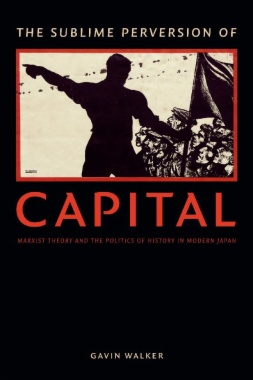In The Sublime Perversion of Capital Gavin Walker examines the Japanese debate about capitalism between the 1920s and 1950s, using it as a "prehistory" to consider current discussions of uneven development and contemporary topics in Marxist theory and historiography. Walker locates the debate's culmination in the work of Uno Kōzō, whose investigations into the development of capitalism and the commodification of labor power are essential for rethinking the national question in Marxist theory. Walker's analysis of Uno and the Japanese debate strips Marxist historiography of its Eurocentric focus, showing how Marxist thought was globalized from the start. In analyzing the little-heralded tradition of Japanese Marxist theory alongside Marx himself, Walker not only offers new insights into the transition to capitalism, the rise of globalization, and the relation between capital and the formation of the nation-state; he provides new ways to break Marxist theory's impasse with postcolonial studies and critical theory.
- Cover
- Title
- Copyright
- Contents
- Acknowledgments
- Note on Translations
- Three Orientations
- One. The Sublime Perversion of Capital
- Two. The Feudal Remnant and the Historical Outside
- Three. Primitive Accumulation, or the Logic of Origin
- Four. Labor Power: Capital’s Threshold
- Five. The Continent of History and the Theoretical Inside
- Six. “The Ready-Made World of Capital”
- Notes
- Bibliography
- Index

